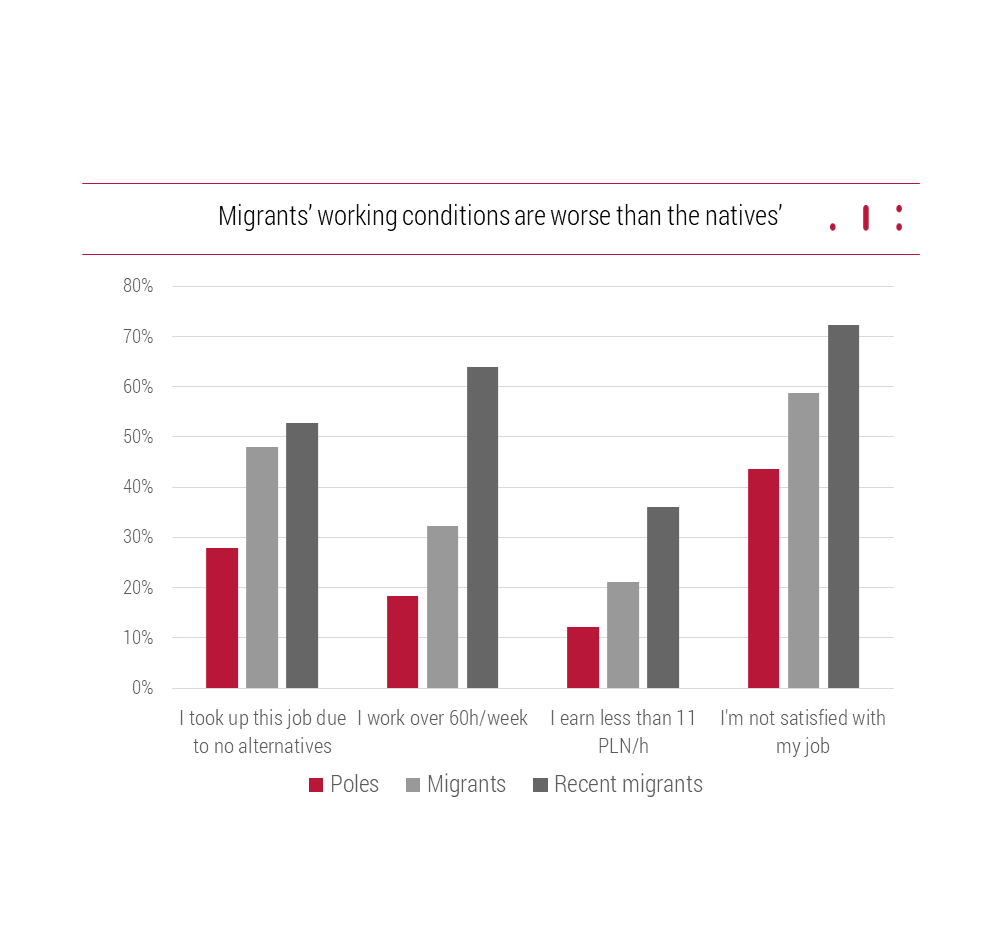The gig economy has grown worldwide, opening labour markets but raising concerns about precariousness. Using a tailored, quantitative survey in Poland, we study taxi and delivery platform drivers’ working conditions and job quality. We focus on the gaps between natives and migrants, who constitute about a third of gig workers. Migrants take up gig jobs due to a lack of income or other job opportunities much more often than natives, who mostly do it for autonomy. Migrants’ job quality is noticeably lower regarding contractual terms of employment, working hours, work-life balance, multidimensional deprivation, and job satisfaction. Migrants who started a gig job immediately after arriving in Poland are particularly deprived. They also cluster on taxi platforms which offer inferior working conditions. Poland is a New Immigration Destination where ethnic economy is poorly developed, institutions to support migrants are weak, and access to migrant networks is limited to several nationalities only. The gig economy can be an arrival infrastructure, but its poor working conditions may exacerbate the labour market vulnerabilities of migrants and hinder mobility to better jobs.

We thank Barbara Jancewicz, Arina Vasilenko, Yana Moldovan, and Ignacy Jóźwiak for invaluable help with data collection and Agata Górny and Jan Drahokoupil for useful comments to the survey. We thank participants of the 2022 Jobs and Development conference in Cape Town and Perspectives on (Un-)Employment workshop in Nuremberg for useful comments. This paper was financially supported by The European Social Fund – Operational Programme Knowledge Education Development as a part of the “System for forecasting the Polish labour market” project. The European Social Fund bears no responsibility for the results and the conclusions, which are those of the authors. The usual disclaimers apply. All errors are ours.
New Technology, Work and Employment

